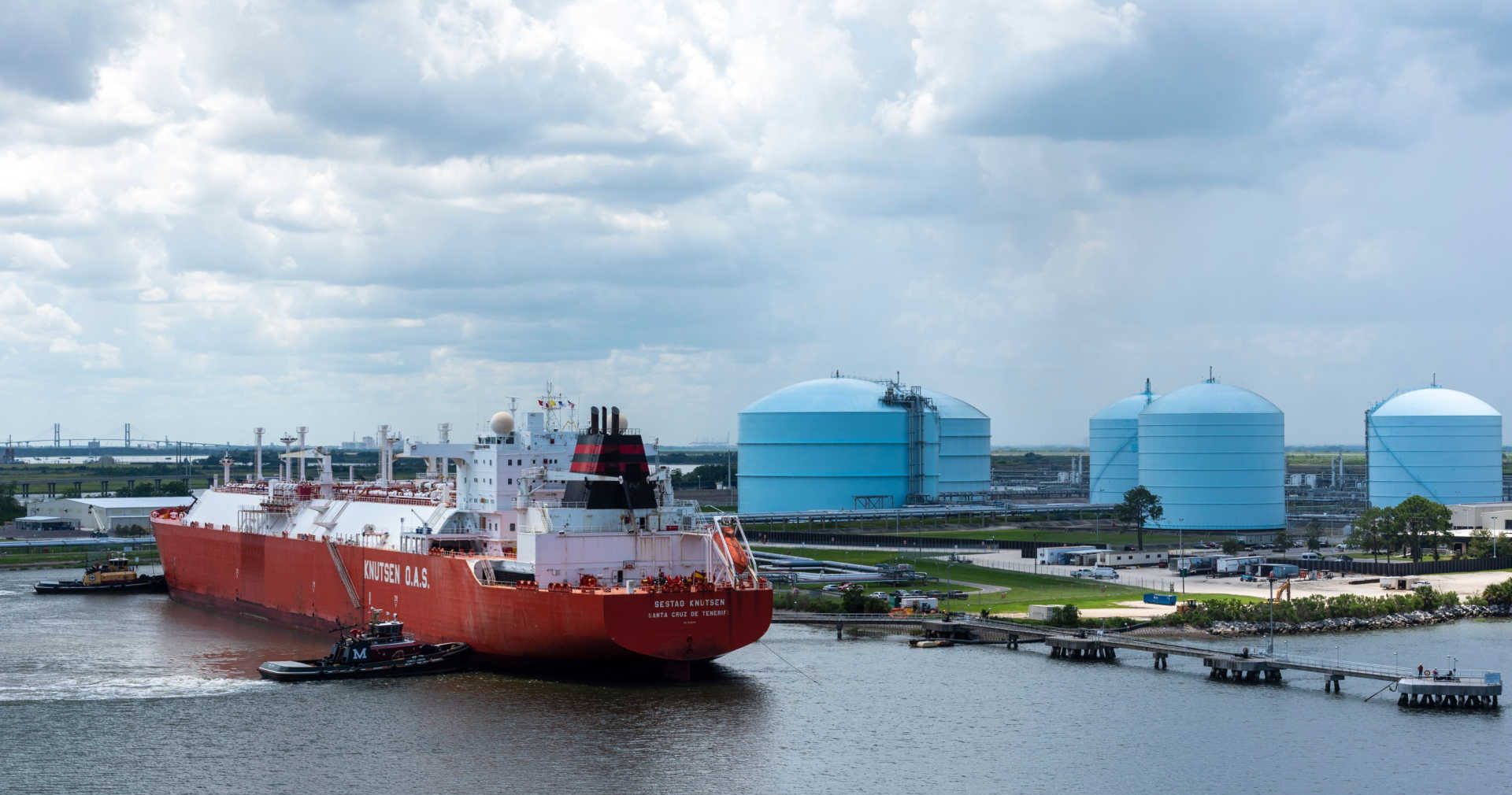
KKR poised to cash in as polluting Port Arthur LNG gets the green light
March 31, 2023
Private equity firm KKR commits more capital as important FID is reached
Private equity firm KKR has committed new funding to the proposed Port Arthur Liquified Natural Gas (LNG) export terminal as the project reached a final investment decision (FID) last week, clearing a path for the project to enter construction. The project is expected to produce approximately 1.9 billion cubic feet of LNG per day (bcfd) for international buyers. If built, this $13 billion project would increase the planned output of U.S. natural gas exports by approximately 15 percent—from 12.1 bcfd forecasted U.S. export capacity in 2023 to approximately 14 bcfd
The Port Arthur LNG project comes with a high carbon footprint, potentially emitting around 7.7 million tons of CO2 per year, according to the company’s proposed air quality permit from the Texas Commission on Environmental Quality. This is equivalent to the annual greenhouse gas emissions from 17 natural gas-fired power plants.
“Private equity’s investments in LNG are not aligned towards a just energy transition and efforts to mitigate climate change,” said Nichole Heil, PESP climate researcher. “The development of LNG facilities has been found to be incompatible with the necessary actions to limit global temperature increases. Simply put, it is widely debunked that LNG is a clean source of energy. The continued development of Port Arthur should be a concern to all who are watching the world’s temperature rise.”
Originally KKR acquired a 20 percent stake in Sempra Infrastructure Partners (SIP) for $3.37 billion in 2021. In the same year they acquired a stake in SIP, the company released its Climate Action Report saying it is committed to sustainable investing. As part of the FID announcement, SIP noted that KKR has committed additional capital to the project through its Global Infrastructure Investors IV fund. With this addition, KKR owns around 45 percent of the Port Arthur LNG export terminal as an equity partner.
“KKR’s messaging on the climate risks of their investments is not congruent with their actual investment actions,” Heil said. “Over the past two years, the firm has been acquiring polluting assets from public markets in transactions totaling almost $16 billion. Now, with almost half of the Port Arthur terminal equity being owned by KKR, the firm is culpable for the community and climate harms the project could lead to.”
Unfortunately, Port Arthur LNG is not KKR’s first foray into harming frontline communities. KKR’s current energy portfolio of dirty and harmful energy assets earned it a ‘D’ in the recent Private Equity Climate Risks Scorecard.
